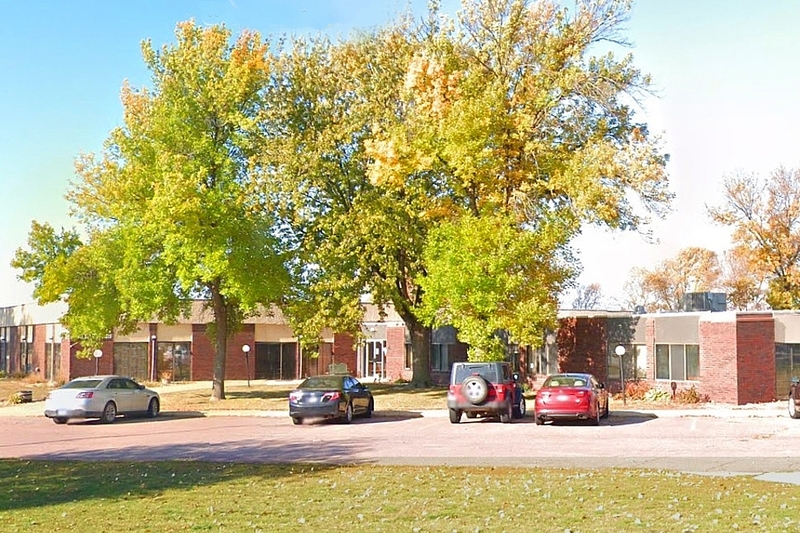Months before ’emergency evacuation,’ state knew of care facility’s plan to close

An Iowa nursing home that avoided giving residents 60 days’ notice of its closure by conducting an “emergency evacuation” of the facility told state regulators months before that it intended to close the building permanently, newly disclosed records show.
Under Iowa law, nursing homes are to give the state 60 days’ notice of a planned closing so the state can work with residents and families on relocation options. In early February, the Rock Rapids Care Centre in Lyon County evacuated its 16 residents on just 48 hours’ notice to residents, with management describing the relocation as temporary until the home could hire enough staff to safely reopen.
Within days, however, the closure was made permanent – angering residents and advocates who felt the emergency evacuation was a ploy intended to skirt the 60-day-notice requirement.
Last month, the Iowa Department of Inspections and Appeals, which regulates Iowa nursing homes, defended Rock Rapids’ actions, saying it had “never been the goal” of the company to close the facility.
However, newly disclosed records from DIA show the facility’s management notified the agency late last year that it intended to close Rock Rapids Care Centre permanently.
On Nov. 21, 2022, someone from the company that manages the facility – the letter disclosed by DIA is unsigned and is not on any sort of company letterhead — wrote to DIA, stating it had “made the very difficult decision to cease operations and will close the facility no later than Feb. 8, 2023.” The facility blamed the closure on an inability to attract workers, and it provided DIA with a detailed plan for what it called “an orderly and safe transfer” of residents.
Two weeks later, on Dec. 6, the company notified DIA that it had made “adjustments” to staff salaries and was seeing an increase in applications from prospective employees. “We would like to slow things down a little to see how these changes improve staffing,” the company told DIA.
DIA says it considered that letter to be the company’s way of rescinding its Nov. 21 closure notice.
On Feb. 1, 2023, the company notified DIA the home was unable to meet its staffing needs for the coming weekend, which was then just two days away, so it would be conducting an emergency evacuation on Feb. 3. While the residents were being relocated, the home’s administrator publicly stated the company fully intended to reopen Rock Rapids at some point.
On Feb. 28, the company wrote again to DIA, providing what it called an “update” to its Nov. 21 closure notice. The company said it had recently “obtained approval” from the real estate investment trust that owns the building to “move forward with closing” the empty nursing home. The company said it would soon be providing the former residents – most of whom had already been relocated to a home run by the same company — with 60 days’ notice of Rock Rapids’ official closing.
While Iowa law requires facilities to give 60 days’ notice of a planned closing, emergency evacuations can be conducted without advance notice in order to protect residents.
When asked about DIA’s role in enforcing the 60-day requirement at Rock Rapids, DIA spokesperson Stefanie Bond said last month that closure of the home had “never been the goal” of the company. She said Rock Rapids’ management had “been exploring several options to avoid closure.”
Asked whether DIA would be lobbying lawmakers to tighten the requirements for providing 60 days’ notice of a planned closure, Bond said, “The state is revising its change-of-ownership application and procedures to include more robust financial information from prospective buyers of long-term care facilities, ensuring they have the financial stability to safely run a health care facility in accordance with state and federal regulations.”
Bond said the intent of the changes is to prevent emergency evacuations and homes falling into receivership. “So if a facility has to close, they can follow the proper closure proceedings to ensure resident safety and choice,” she said. “Additionally, the state has made legislators aware of the recent issues and have been working with them on possible legislative changes as well.”
The controversy over Rock Rapids’ closure comes at a critical time for Iowa, with some industry officials predicting that Iowa could soon be hit by a wave of nursing home closures. Advocates for seniors fear that other care facilities will follow Rock Rapids’ lead and shut down without giving regulators 60 days’ notice to approve plans for safe, orderly transitions.
One of the nursing home industry’s professional associations and lobbyists, Leading Age Iowa, recently issued a report predicting that unless the government increases Medicaid payments to care facilities, Iowa will soon be hit by “an unprecedented wave” of nursing home closures.
Last year, at least two nursing home chains went through bankruptcy or receivership, and at least 17 nursing homes closed. In the past three months, five additional care facilities have indicated they are closing.








